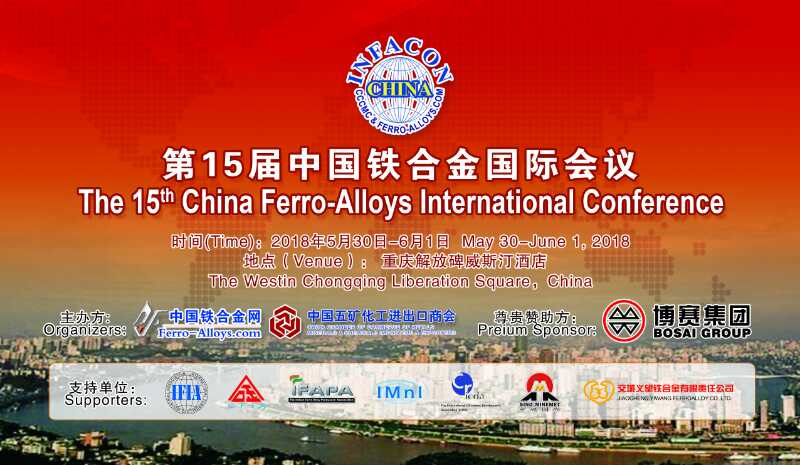[ferro-alloys.com]Brazilian ferrous scrap prices have notched a new record high, as generation has not yet been able to keep pace with increasing demand from industrial activity, which is rising after recent years of hardship due to domestic economic and political woes. S&P Global Platts assessed the weekly clean steel scrap price at Real 935/mt ($271/mt) Monday, up 3.9% from the previous week and a jump of 75.4% since January 1. In the first quarter, prices rose 45.5%.
Monday's assessment was the highest since Platts started monitoring the product in 2010.
Market participants expect a persistent rise in prices at least for the next six months, by which time they expect scrap generation should find some stability, while the presidential elections in October may bring another round of uncertainty to the industrial sector.
Meanwhile, companies not willing to pay the higher prices have been seeking alternatives, such as increasing the production mix for pig iron, or even importing the material.
"This is a short-lived strategy," said a scrap dealer, citing the maximum use of 30% of pig iron (versus 70% of scrap) in the steelmaking process.
A 30,000 mt scrap cargo was reportedly booked by local steelmakers last month and is set to arrive soon at one of the Southeastern ports in Brazil.
"Steelmakers are paying the same value or even higher for these imported scrap just to avoid local purchases, fearing prices would strengthen further," said a dealer.
A year ago, clean steel scrap was being sold in Brazil at Real 430/mt, or 117%, below the current price -- a level that had held almost unchanged since 2015.
Market sources say tight supply is the main driver of scrap prices nowadays, but Brazilian scrap association Inesfa said that "there is no shortage of ferrous scrap in the country."
The group expects ferrous scrap generation to reach 7.6 million mt in 2018, up 4.1% from the previous year, while demand is expected at 5.5 million mt and inventories are calculated to top 22.4 million mt.
"For decades [scrap] generation and inventories have exceeded demand," Inesfa added.
A consumer source disagreed, saying that it was quite difficult to receive large volumes of scrap in February and March. "I do think supply has been tight," he added, noting that deliveries have been easier since early April.
The same source explained that delivery times have been prolonged since the beginning of the year, and payment terms were revisited in order to secure desirable material. "We started offering payment at sight instead of 7-10 days after delivery, just to make sure our orders would be fulfilled." A scrap dealer agreed and said dynamics have changed. "I'm giving preference to those companies paying at sight," he said, adding that scrap collection has been slower than expected.
Nevertheless, some steelmakers were said to be paying in advance, "targeting to freeze prices more than securing material," a source at one mill said.
Although steelmakers still represent roughly 90% of Brazilian ferrous scrap demand, scrap dealers have begun to turn their attention to foundries or to the export market in order to guarantee higher prices.
"It has been easier negotiating with a customer 1,000 km away of my yard than selling to a steelmaker 20 km away," said a dealer.
Inesfa said the rise in prices has been linked solely to increasing demand. "This phenomenon has been occurring with other products due to the slight resumption of the [Brazilian] economy and [industrial] production," it said.
Indeed, the automotive sector -- currently the main engine of the domestic steel and recycling industry -- has reversed the downtrend of past years, bringing some optimism to the production chain.
Vehicle production in Brazil rose 25.2% in 2017, according to national carmakers association Anfavea. In total, 2.69 million cars, trucks and buses were made during the year, against 2.15 million vehicles in 2016, halting three years of output declines.
In Q1 2018, both production and sales of vehicles in Brazil rose about 15% from Q1 2017, reinforcing 2018 growth projections of 13.2% and 11.7%, respectively, according to Anfavea.
"Not yet sunshine and roses for Brazil in 2018," said a scrap dealer, however, who expected the price boom to be short-lived. He added that while the scrap sector is the first to feel the economic recovery, it also is the first to show a decline.
"And the panorama for Brazil is not bright," he said, referencing the looming presidential elections. "Whatever happens in October, it won't bring prosperity, not at least in the next two years. We are facing a phase of adjustments, and this requires losses and pain."

- [Editor:王可]



 Save
Save Print
Print Daily News
Daily News Research
Research Magazine
Magazine Company Database
Company Database Customized Database
Customized Database Conferences
Conferences Advertisement
Advertisement Trade
Trade










Tell Us What You Think